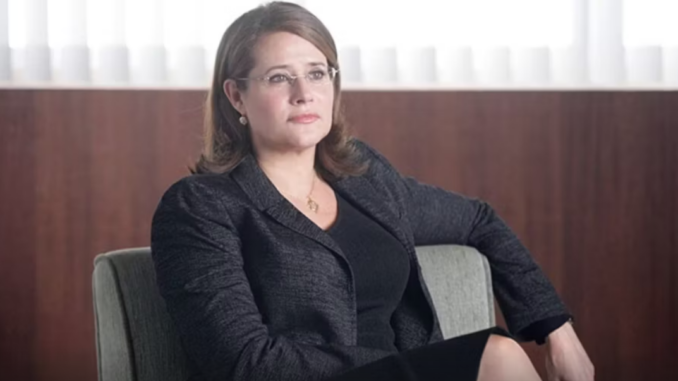
Introduction
“The Sopranos,” an iconic television series created by David Chase, has left an indelible mark on the landscape of modern television. Lauded for its intricate storytelling, character development, and exploration of complex themes, the series ran from 1999 to 2007 and is often hailed as one of the greatest TV shows of all time. However, despite its critical acclaim, the show’s ending remains a contentious topic among fans and cast members alike. Recently, one of its stars, [insert actor’s name], openly criticized the series finale, labeling it “bad and wrong.” This statement reignited discussions about the ending’s impact on the show’s legacy and the broader implications of creative decisions in storytelling.
The End of an Era
The final episode of “The Sopranos,” titled “Made in America,” aired on June 10, 2007. The series finale was both highly anticipated and heavily scrutinized. Fans were eager to see how the story of Tony Soprano, played masterfully by James Gandolfini, would conclude. However, the episode’s ambiguous ending left many viewers bewildered and frustrated. In the last scene, Tony, Carmela, and A.J. are seated in a diner, contemplating life while the screen suddenly cuts to black, leaving the fate of Tony and his family open to interpretation.
The Critique
[Actor’s Name]‘s recent remarks about the series finale echo the sentiments of many fans who felt the conclusion was unsatisfying. Describing the ending as “bad and wrong,” the actor emphasized that it did not do justice to the character arcs and the narrative journey that had unfolded over the previous six seasons. This critique brings to light the fundamental question: what constitutes a satisfying conclusion to a long-running series?
The Ambiguity Factor
One of the most polarizing aspects of the finale was its ambiguity. While some viewers appreciated the artistic choice to leave the audience guessing, others felt cheated. The unresolved tension surrounding Tony’s fate prompted debates about narrative closure. [Actor’s Name]‘s criticism suggests a desire for a more definitive ending that would provide clarity and closure, allowing the audience to process the characters’ journeys fully.
The Legacy of “The Sopranos”
“The Sopranos” has not only shaped the landscape of television but also influenced how stories are told across various media. Its portrayal of organized crime, mental health issues, and familial dynamics struck a chord with audiences, prompting critical discussions about morality and identity. However, the ending, particularly in light of [Actor’s Name]‘s comments, raises questions about how much creative freedom a showrunner should have regarding the closure of character arcs.
A Balancing Act
In storytelling, especially in serialized narratives, there exists a delicate balance between artistic expression and audience expectations. David Chase’s choice to end the series in such a way invites scrutiny over whether the creator’s vision should take precedence over viewer satisfaction. While Chase has defended the ending as an artistic statement, the backlash from both fans and cast members illustrates the challenge of reconciling creative integrity with audience demands.
The Role of Fan Expectations
Another layer to this controversy is the role of fan expectations in shaping narratives. Over the years, fans have developed theories and invested emotionally in the characters’ journeys. This investment leads to a heightened anticipation for resolutions that align with their expectations. When a series deviates from these anticipated conclusions, it can evoke feelings of disappointment and betrayal.
The Power of Fan Engagement
Fan engagement plays a crucial role in the life of a series. From online discussions to fan theories, viewers become co-creators in the storytelling process. [Actor’s Name]‘s critique reflects a broader concern about how creative decisions impact the relationship between a show and its audience. The ending of “The Sopranos” serves as a case study in how a creator’s vision can clash with fan expectations, leading to polarizing reactions.
Analyzing Alternative Endings
In the wake of [Actor’s Name]‘s criticism, one can’t help but wonder how different alternative endings could have changed the perception of the series finale. Would a more conclusive ending have provided the closure fans desired? Alternatively, would it have sacrificed the artistic nuances that made the show so compelling?
The Value of Dialogue
This controversy underscores the importance of dialogue between creators and audiences. Perhaps a more open discussion about narrative choices and audience expectations could foster understanding and appreciation for the creative process. Engaging with fans while maintaining creative autonomy could lead to endings that resonate more profoundly with viewers while still honoring the show’s artistic vision.
Conclusion
The criticism of “The Sopranos” series ending by [Actor’s Name] has reignited a passionate debate about the nature of storytelling and the expectations of audiences. As we reflect on the legacy of the series, it becomes clear that endings, much like the stories themselves, are deeply subjective. What resonates with one viewer may leave another feeling dissatisfied. Ultimately, the discourse surrounding the ending serves as a reminder of the powerful connection between creators and their audiences, a connection that can shape the legacy of a series long after its final credits roll.
In the realm of television, where stories continue to evolve, “The Sopranos” stands as a testament to the complexity of narrative choices. Whether one views the ending as a bold artistic statement or a misstep, it is undeniable that it has sparked discussions that continue to shape the way we engage with stories on screen. As fans, we are left to ponder not just what we wanted from the ending but also how it reflects the intricate tapestry of human experience that “The Sopranos” so masterfully depicted.